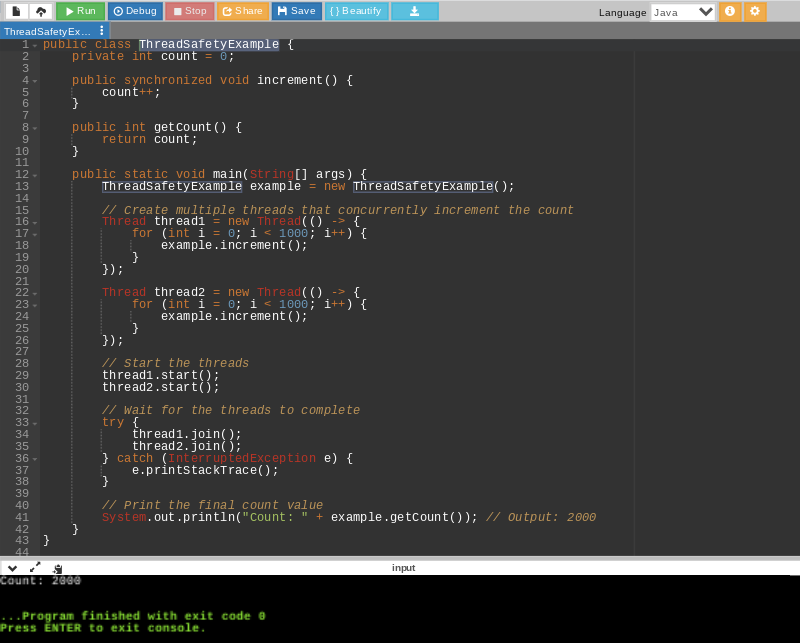Why Are Strings Immutable in Java? Safety And Security and Performance Conveniences
Why Are Strings Immutable in Java? Safety And Security and Performance Conveniences
Blog Article
What Is Unalterable Strings and Just How It Functions
In the realm of programming, understanding the idea of immutable strings is paramount for creating protected and durable applications. Unalterable strings refer to strings that can not be modified after they are produced, guaranteeing data integrity and predictability within the code. This essential concept plays a crucial function in different shows languages and provides an one-of-a-kind strategy to taking care of data. By exploring the details of how unalterable strings operate, one can discover a world of advantages and opportunities that can elevate the quality and performance of software program advancement.
The Fundamentals of Immutable Strings
Unalterable strings, as an essential idea in programming, are personality sequences that can not be transformed as soon as they are created. This suggests that when a string is designated a worth, that worth can not be altered. In languages like Python and Java, strings are immutable items, causing different ramifications in terms of memory administration and data integrity.
One of the essential benefits of unalterable strings is that they give a complacency in data control. Since the content of an unalterable string can not be customized, it ensures that the original data continues to be intact, reducing the danger of unexpected modifications throughout program implementation (Why are strings immutable in Java?). This home additionally streamlines debugging processes, as programmers can rely on that as soon as a string is defined, its worth will not be accidentally modified
Additionally, unalterable strings assist in effective memory use. When a new string is produced based on an existing one, as opposed to changing the original string, the new worth is saved individually. This approach boosts performance by lowering memory fragmentation and simplifying memory appropriation procedures. Overall, recognizing the fundamentals of unalterable strings is vital for understanding shows principles and optimizing code effectiveness.
Advantages of Unalterable Strings
Structure upon the security and performance advantages of unalterable strings, their advantages encompass enhancing code dependability and streamlining concurrent programming jobs. By being unalterable, strings can not be changed after production, which eliminates the risk of unintended modifications in the information they keep. This inherent immutability ensures that as soon as a string is created, its value continues to be continuous throughout the program's implementation, lowering the opportunities of pests caused by unforeseen alterations.
Additionally, unalterable strings add to code integrity by making it less complicated to reason about the state of a program. Because strings can not be transformed, programmers can rely on that a string will always hold the very same value, streamlining debugging and upkeep efforts. This predictability causes a lot more trustworthy and steady codebases.

Application in Programming Languages
Within various programs languages, the unification of immutable strings is a basic element that influences just how data is managed and adjusted within code frameworks. The execution of unalterable strings differs across various programming languages, with each language supplying its own mechanisms to support this idea.

On the other hand, languages like C and C++ do not have built-in support for immutable strings. Programmers in these languages must by hand implement immutability by implementing policies within their code to avoid straight adjustments to string objects.
Ideal Practices for Dealing With Immutable Strings
When handling immutable strings in programs languages like Java and Python, adhering to ideal methods makes certain effective and secure data control. One of the essential ideal practices is to utilize StringBuilder or StringBuffer rather of straight controling strings, especially when handling substantial concatenation operations. These courses supply mutable alternatives for string adjustment, helping to avoid unnecessary memory allowances and improving efficiency.
Furthermore, when working with sensitive information such as passwords or API keys, it is essential to avoid saving them as ordinary text in immutable strings. Utilizing safe storage space systems like char selections or specialized libraries for handling sensitive information aids reduce protection threats connected with immutable strings.
Real-world Applications and Examples
Discovering practical executions of immutable strings in numerous industries reveals their considerable effect on information stability and system dependability. In the healthcare sector, immutable strings play an important function in making sure the protection and confidentiality of person information. By protecting against unauthorized modifications to sensitive information such as clinical documents and prescriptions, immutable strings aid maintain conformity with rigorous privacy laws like HIPAA.
Banks likewise gain from the immutable nature of strings to improve the safety of client information and transaction records. Immutable strings help avoid scams and unapproved modifications to monetary info, providing a robust protection versus cyber hazards and making certain the trust and confidence of clients.

Final Thought
To conclude, immutable strings are dealt with go to this web-site and stable sequences of characters that use benefits such as thread safety and enhanced performance in shows. They are applied in numerous shows languages to guarantee data honesty and protection. Best practices for dealing with immutable strings consist of staying clear of direct adjustments and making use of techniques that return brand-new string objects. Real-world applications of immutable strings include information encryption, caching, and string manipulation tasks.
Immutable strings refer to strings that can not be changed after they are created, making sure information stability and predictability within the code. When a new string is developed based on an existing one, instead than customizing the initial string, the brand-new worth is kept separately.In languages like Java and Python, strings are immutable by default, suggesting that as soon my response as a string object is developed, its value can not be changed - Why are strings immutable in Java?. Best practices for working with immutable strings include staying clear of direct adjustments and using techniques that return brand-new string things. Real-world applications of immutable strings consist of information security, caching, and string control jobs
Report this page